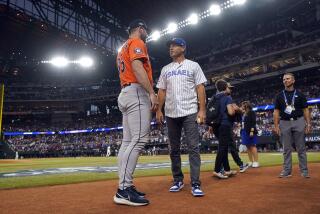Obama, Castro and young Cuban player watch as politics of baseball play out on Havana field
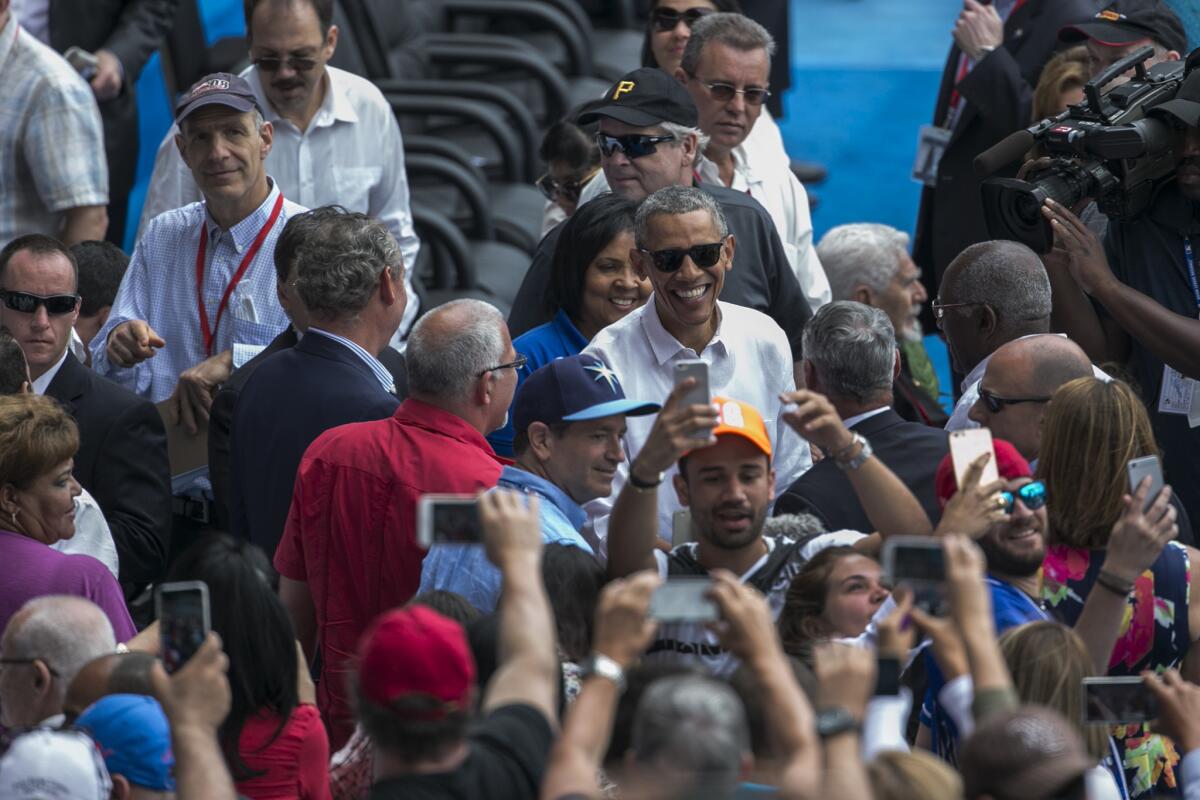
President Barack Obama mixes with the baseball fans at the Cuba-Tampa Bay Rays matchup.
- Share via
Reporting from Havana — From his perch up near the rafters, Jose Aballi Azahares took it all in: the packed stadium, the giant cameras, the leaders of two countries – sworn enemies until recently – sitting side by side behind home base.
But Aballi wasn’t watching the presidents, Barack Obama and Raul Castro, who attended the ballgame after two days of historic meetings in Havana.
He was watching the game.
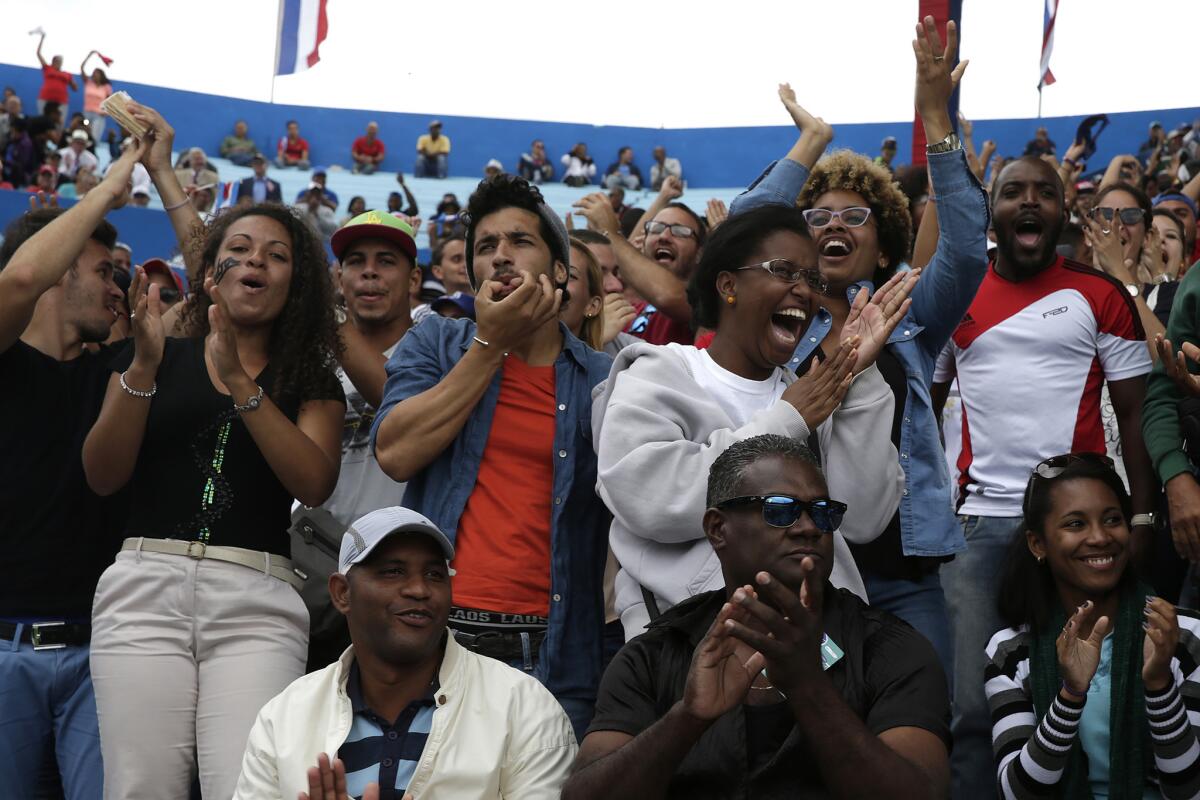
Fans jump to their feet as Cuba’s first batter hits a single against the Tampa Bay Rays. The American team ended up winning 4 to 1.
“This is the biggest experience of my life,” Aballi, 18, said as the crack of a bat sent a ball flying over the fences. “A dream.”
A star third baseman in Cuba’s 18-and-under league, Aballi hopes to play professionally in the future.
Exactly where he does that is a question faced by every talented ballplayer in Cuba. And it’s one that was laid out on the field Tuesday.
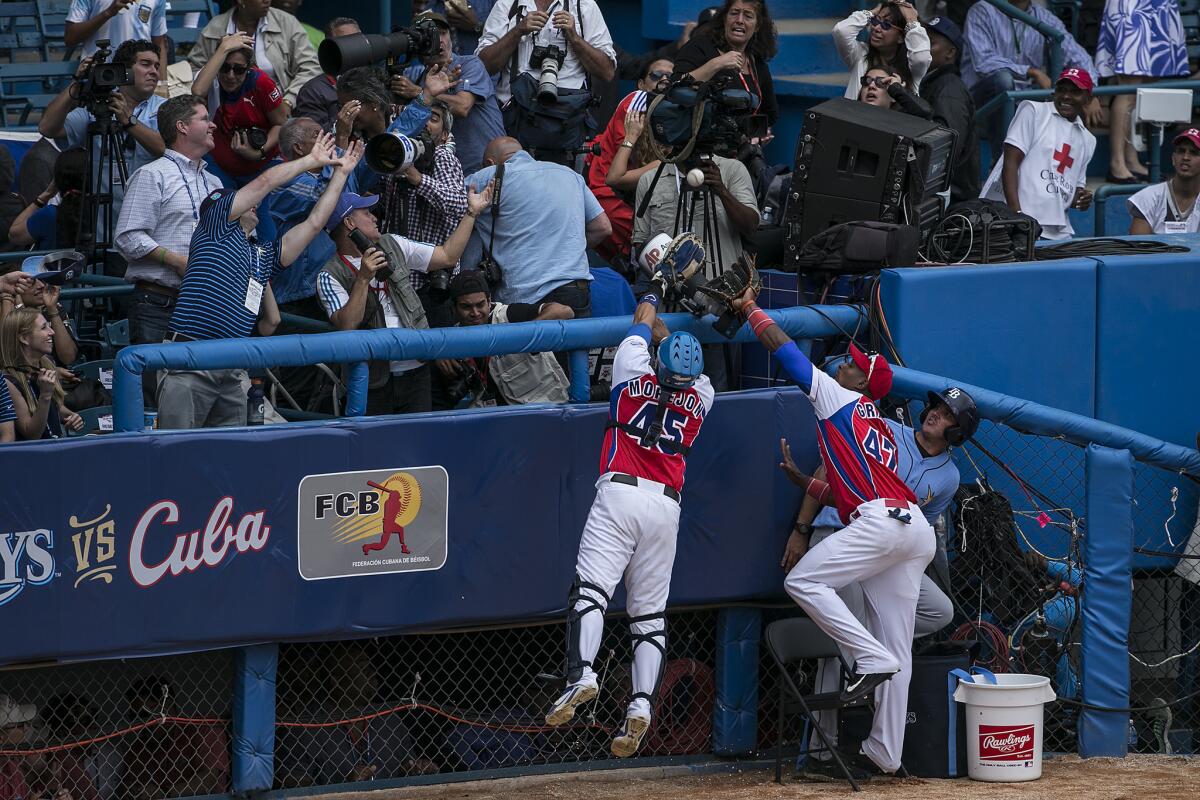
Cuban players can’t reach a ball as it falls into the stands during the exhibition baseball game with MLB’s Tampa Rays at Estadio Latinoaericano.
Dressed in red and white was Cuba’s national team. Aballi, a gifted hitter who attends a high school specifically for Cuba’s best young athletes, knows a few of the players personally. He re
spects them for staying in Cuba and remaining loyal to the communist government despite receiving very little pay.
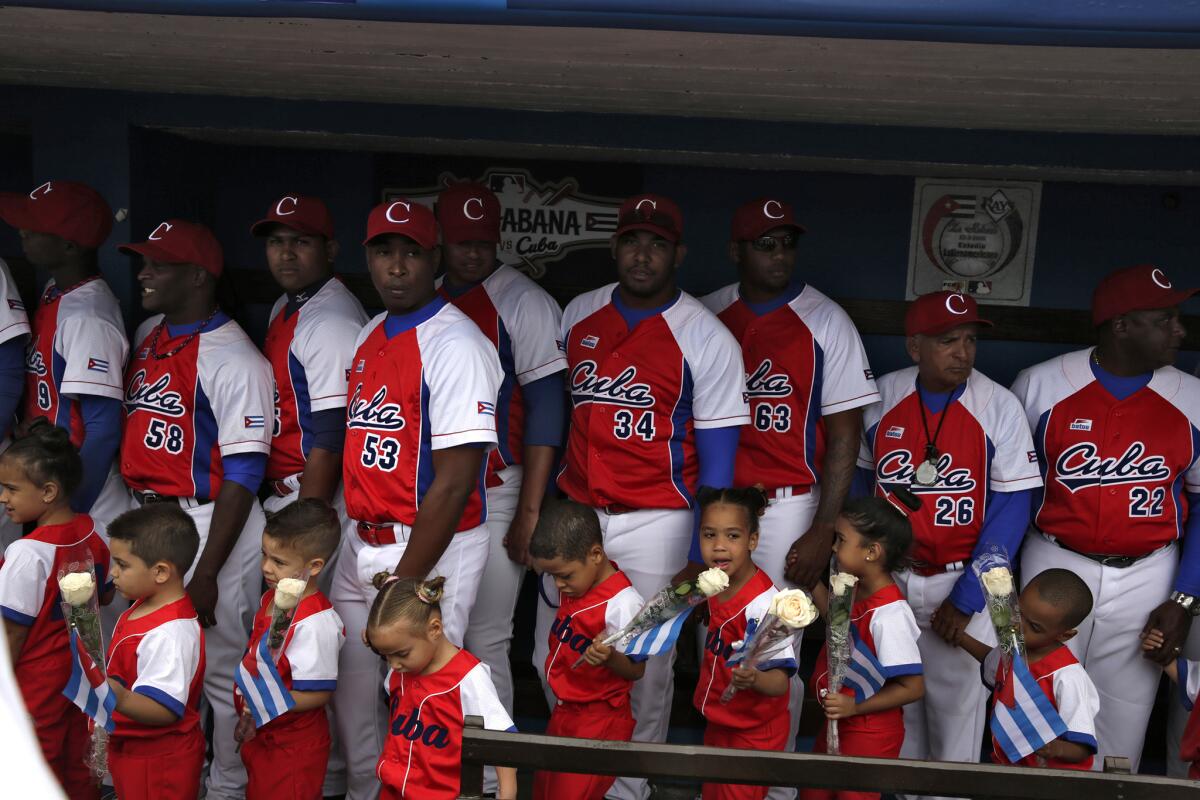
Cuba’s national team and young fans await opening ceremonies for the exhibition game with the Tampa Bay Rays, attended by Presidents Obama and Castro.
In blue and gray were the Tampa Bay Rays, a Major League Baseball team that organized Tuesday’s exhibition game to help mark the warming of U.S.-Cuba relations and the historic Obama-Castro talks. One of the team’s players, Dayron Varona, defected from Cuba three years ago for the prospect of a better salary and lucrative endorsement deals in the U.S.
Under a cloudy sky, and with Havana’s crumbling colonial-era skyline on the horizon, Aballi said he understands why some players leave Cuba. He says he would never defect, but hopes that changes to U.S. and Cuba policy soon will make it easier for Cubans to play in the U.S. But even as he says it, he doesn’t sound entirely convinced.
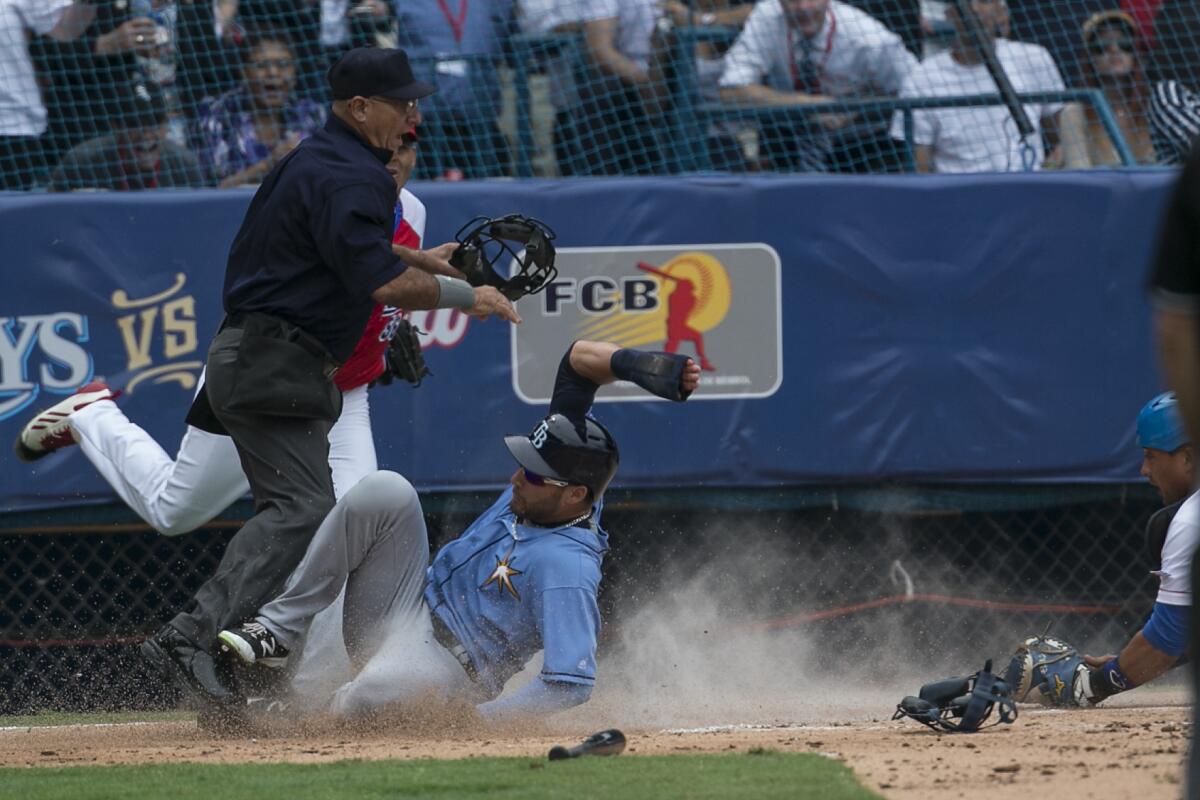
Tampa Bay Rays baserunner Kevin Kiermaier scores a run in the second inning to give Tampa a 1-0 lead over the Cuba National Team at Estadio Latinoamericano.
Aballi first picked up a baseball at age 8. He has been hooked since, and now practices about three hours a day and lifts weights at the gym on his days off.
His parents and extended family have to come up with the money for spikes, bats and even balls because the Cuban government only funds its professional teams.
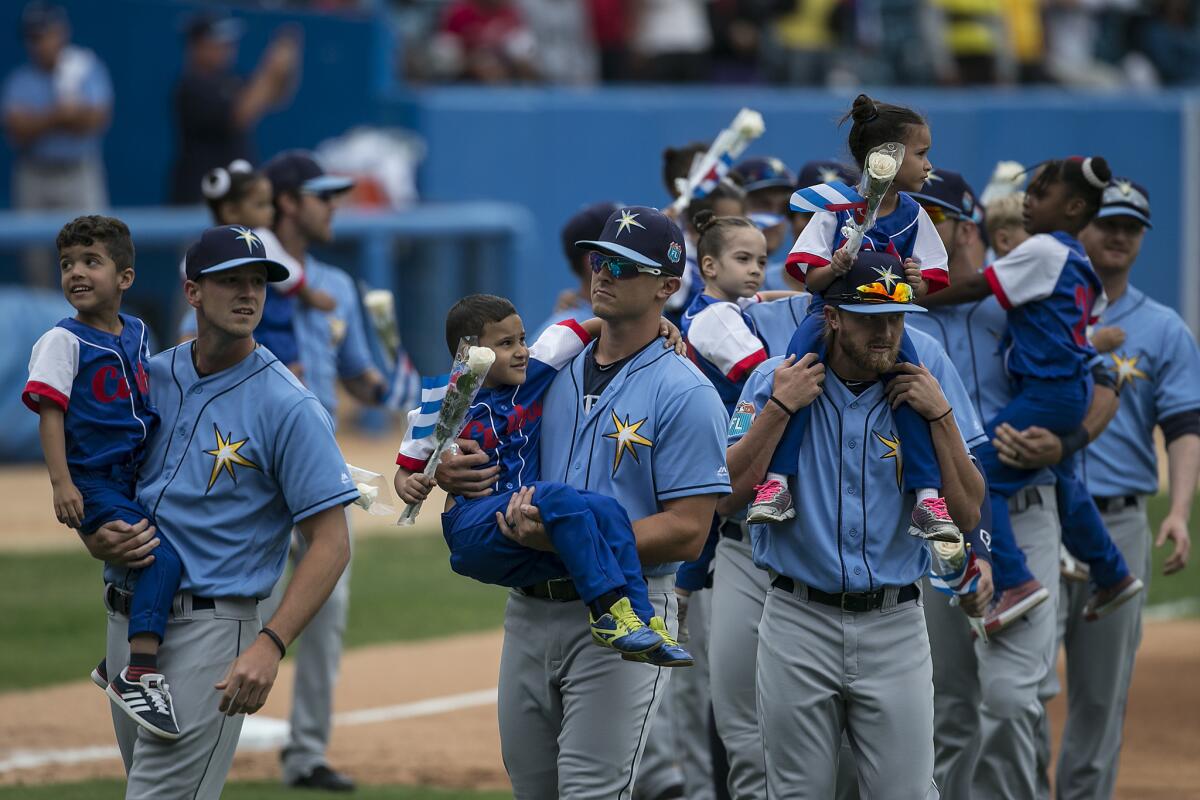
Tampa Bay Rays players carry Cuban children during opening ceremonies at an exhibition baseball game between wiith the Cuban National Team.
Aballi spends so much time with his teammates, he calls them his family. They lounged together high in the bleachers, a few young men leaning back on the legs of young women who attend their school. There was no advertising for beer companies or insurance agencies — just a billboard with a picture of a ballplayer, a Cuban flag and the word “united.”
Chants of “Cu-ba, Cu-ba” erupted when a Cuban batter walked on to the field. They were followed by shouts of anguish a few innings later when a Rays player hit a home run.
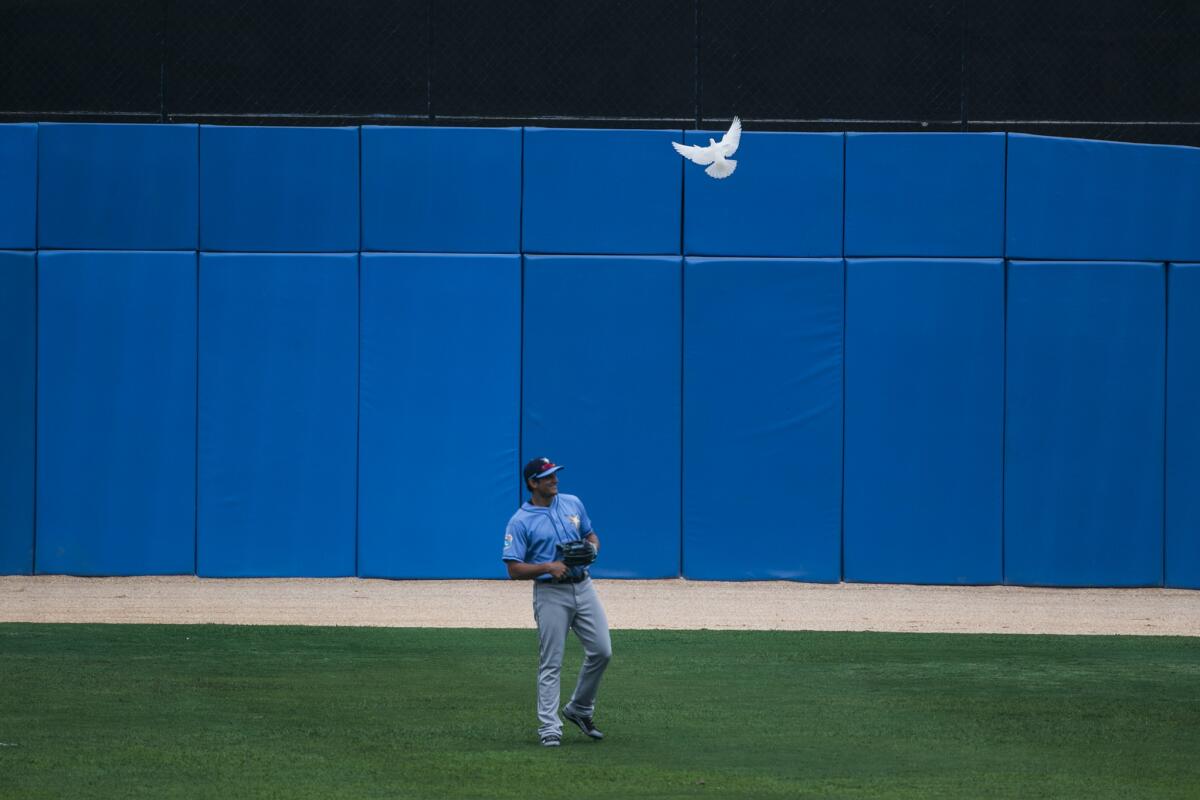
Tampa Bay Rays center fielder Mikie Mahtook chuckles as a dove flies overhead during an exhibition game between Tampa and the Cuban National Team.
The Rays, who ended up winning, 4 to 1, had more talent than the Cubans, Aballi conceded. He said that is because the Cubans have lost some of their best players to defections in recent years, including Lourdes and Yulieski Gourriel, top players from a famed Cuban baseball family who abandoned their team earlier this year while on a trip to the Dominican Republic — presumably to seek careers in the U.S.
Aballi misses them, but doesn’t blame them. “It’s each person’s decision,” he said.
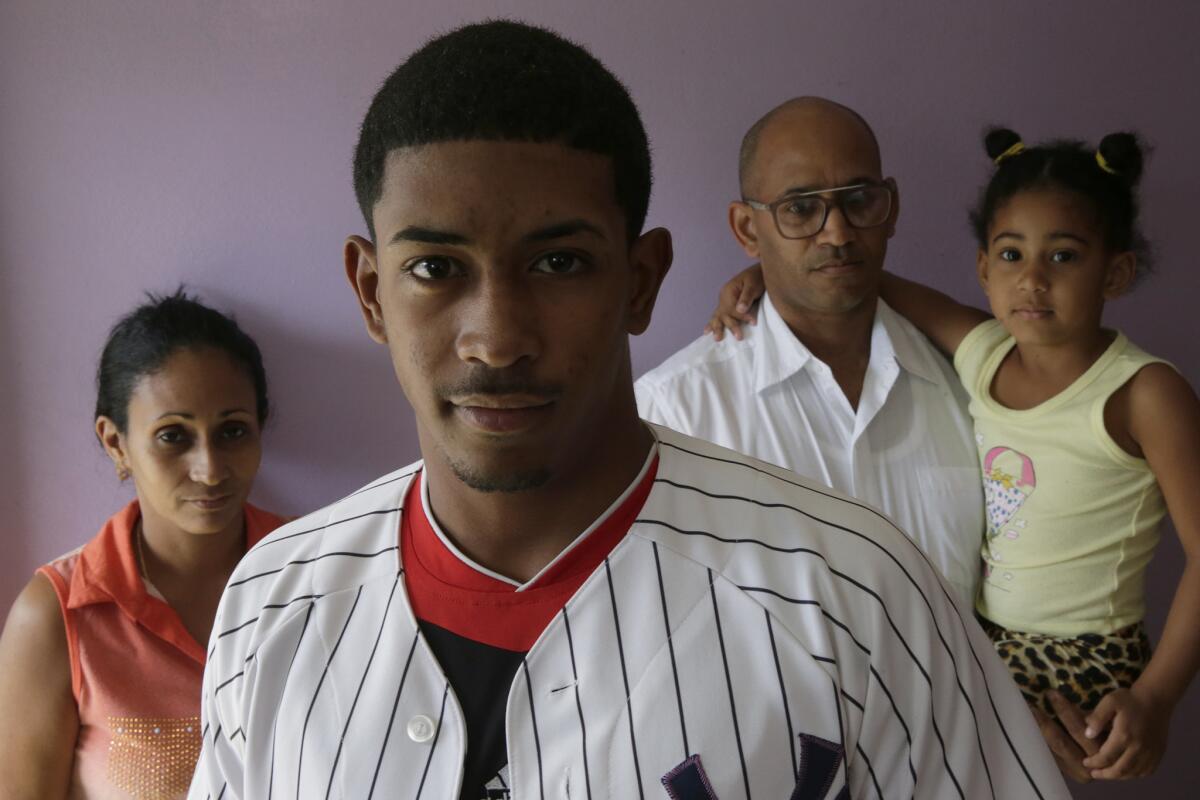
Jose Aballi Azahares, 18, at home with his family. Left to right behind him are his mother Madelin Azaharez Renda, father Jose Valodia Aballi Cintra and sister Carla Camila.
As salsa music blasted and his friends snacked on cookies they brought from home (there were no hot dogs or beer for sale, just government-manufactured crackers and garlic puffs), Aballi kept his eye on third base. That’s where one of his favorite players, Tampa Bay Rays player Evan Longoria, was fielding catches. Longoria is signed with the Rays on a 10-year, $100-million contract. The fame and money sound good to Aballi, but for him, one of the best things about playing in the major leagues would be the chance to play in Yankee Stadium.
When he closes his eyes, he can see it. The crowd is huge, and cheering loudly. He connects with the ball — a home run.
Follow @katelinthicum on Twitter
More to Read
Sign up for Essential California
The most important California stories and recommendations in your inbox every morning.
You may occasionally receive promotional content from the Los Angeles Times.
